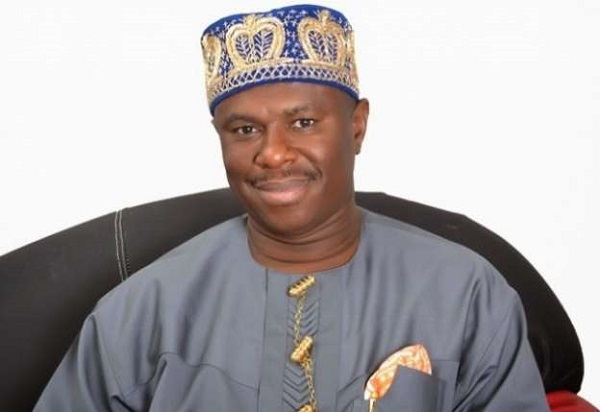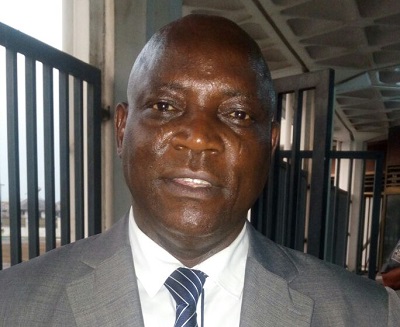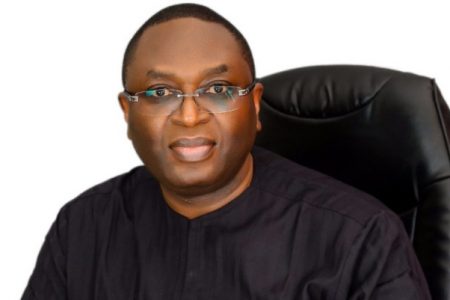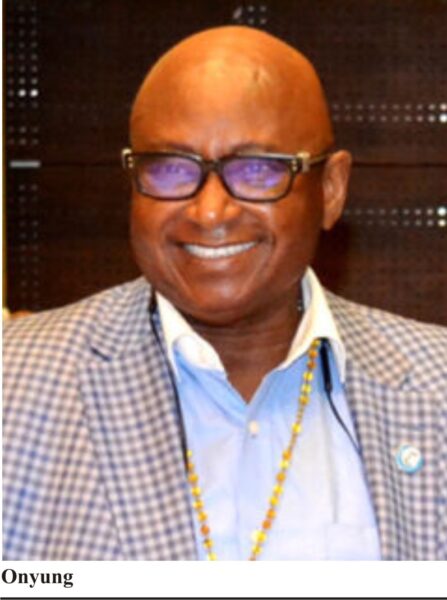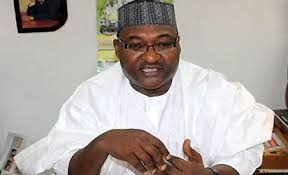Why Nigerian Ports Have Recurring Problems – Nwagbara
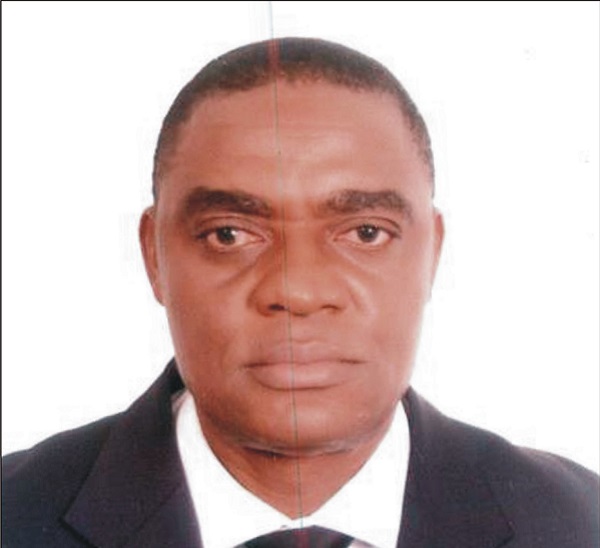
By Kenneth Jukpor & Yusuf Odejobi
Barr. Emmanuel Nwagbara is a veteran maritime lawyer and Chairman, Legal Committee of Nigerian Ports Consultative Council (PCC). In this exclusive interview with MMS Plus newspaper, he speaks on several pertinent issues in the nation’s maritime sector. Enjoy it:
Some of the challenges at Nigerian ports can be attributed to the port concession agreement and several terminals have had their 10-year concession period expired. However, there hasn’t been an amendment or review of the concession agreement to cater for the shortcomings. What’s your take on this?
The initial concession agreement does not provide for this regular amendment everyone is talking about now. The agreement itself was for a period of time, some concessionaires got 10 years, others 15 years and the longest is 25 years.
Usually, for agreements like this, the standard agreement is that the document is expected to span over the numbers of years it was agreed on. It is not subjected to periodic review which can lead to policy somersault such as bringing in another policy within a year or more after the agreement has been made.
The reviews usually come at the end of the concession agreement. Since the agreement was signed in 2006, we expected that those that signed for 10 years ought to have done a comprehensive review of the agreement by 2016, taking into cognizance the experiences of port operators, the port users and port services providers. All port stakeholders should have been invited to make contributions and itemize the lapses, complaints and deficiencies.
At this moment, I am not aware if there was a review for those that signed for 10 years period in the concession agreement or how they went about the renewal.
We’re always talking about it, expecting that the review will be something that will be more open compared to when the first agreement was done. This is because the port business is everyone’s business in Nigeria, which includes the government, port operators, port users, port service providers and also those that have their businesses and residence around the port environment who may not be directly involved in the port activities.
Following the criticisms that trailed the concession agreement, we expected that the next review would be a comprehensive one where all stakeholders directly or indirectly involved at the port would be involved. We aren’t aware that this open and comprehensive review has been done.
When the regulator started talking in hushed tones that the concession agreement had been reviewed, we felt that it’s not right. So, we’re saying here that the port concession agreement is long overdue for review and this review has to be done with inputs from stakeholders and not just the government alone. Government is not only the enterprise running the ports, it involves other stakeholders too.
All of the problems at the ports with respect to that concession agreement happened because we have not grown our institutions to be strong.
How do you relate this challenge to the absence of strong institutions in the sector?
The truth is that there aren’t strong institutions in the sector and in Nigeria at large. We have grown titans within the institutions, so that it can be manipulated by those who run the organizations. An institution in Nigeria is not a system where an individual can fit into, rather the system struggles to fit into the mindset of the individual who is appointed the Chief Executive. This approach is very wrong and it is the reason we’re having the problems in the nation’s public institutions today, and the port system is not excluded.
As we talk about the issues affecting terminals and the concession, an example is ENL Consortium which recently said it commenced full time containers handling operations. What’s the framework for such changes?
ENL Consortium started from a general purpose terminal, they’re supposed to be handling iron and steel, breakbulk cargo and the rest which falls under the terminology of general cargo. Now, they intend to commence full time container handling. This is exactly what plays out when government institutions are weak.
The agreement needs to be respected, until the agreement comes to an end you cannot begin to turn from one class of cargoes to another. There are terminals who were allotted different classes of cargoes, such as; container terminals, general cargo terminal, bulk cargo terminal, RORO services terminal, among others.
Recall that there was a point when we saw the government frustrate people who were into RORO shipping business with the banning vehicles and port stakeholders cried out. Such things happen because we have individuals who are stronger than the system. I repeat that in a situation where we have a strong system, there is certainty that individuals must fit into that system but in a situation whereby you leave the system at the manipulation of the CEOs or people who can walk up to people and say do me this favour, we can’t make progress. The result will also be that people will not respect the agreement they signed.
Everybody operating in the port system under the concession agreement of 2006 including the terminal operator has flouted that agreement and the government has not been able to enforce that agreement, so everyone is pulling the strings they can lay hands on.
We also expected that in the review that would take place, a lot of things would be done right and there would be certainties in the implementation of the agreement. That’s the only way we can build strong institutions in the maritime sector.
Nigerian Shipper’s Council (NSC) recently presented the Nigeria Port Processing Manual (NPPM) to the Nigerian Ports Consultative Council (PCC). What significance does NPPM have for the maritime sector?
PCC is the highest consultative council in the Nigerian port service sector and the engagement with stakeholders, regulatory agencies has always been at a general level. I think for the first time it is a recognition by the Shippers Council that they have responsibilities which the new manual has trust upon their shoulders and they require the PCC to support them in the bid to succeed with that task.
PCC has the publicity, capacity, resource and resource persons to educate by way of advocacy to make a better maritime industry in Nigeria. They also have the personnel and resource persons for the purpose of mediating on issues in the maritime industry.
Nevertheless, this role of PCC has been neglected over the years. The regulatory agencies have not adequately recognized that the PCC is made up of people that are well experienced and can mediate on issues in the industry. Again, the PCC is also there to collaborate and consult with the NSC on the best way NSC can achieve its objectives.
NSC recognized PCC and presented the port process manual to them, recognizing that PCC will assist them by way of advocacy on matters on the port industry, by mediation and settlement of disputes, by way of constantly looking at the processes, service delivery and providing ways to get things done better in the maritime industry. That is the significance of the meeting.
What’s special about NPPM, have you studied the document, what impact would it have on port operations?
We’re still studying the manual, but I have observed that the manual is not saying anything different from what is obtained at the ports. It is simply reminding us that these things are there and need to be improved on. It is a compilation of everything we have been doing at the ports, but this time it shows how we can do it better.
It behooves port operators and users of port services to ensure that the outline of the port process manual is followed. Adherence to NPPM would give us a better industry that would keep food on the table of Nigerians, and guarantee an industry that will continue to grow Nigeria’s economy.



